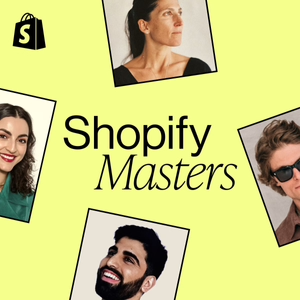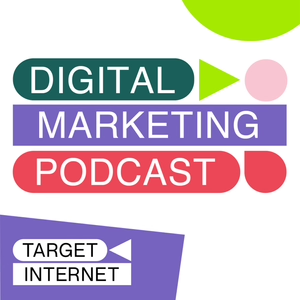
Making an impact: how to weave purpose into profits | Fiona Ras-Jones
Explicit content warning
07/12/22 • 25 min
From planting trees to fighting hunger, many companies have a cause to champion. But with so much greenwashing and virtue signaling, audiences are (understandably) suspicious. How do you build an authentic purpose into your business in the right way? And can it really help your marketing?
Join me on Marketing Unf*cked as I speak with Fiona Ras-Jones, founder of the Make Impact agency, as we talk about the right ways (and wrong ways) to build a purpose-driven business.
We get into the perils of greenwashing, how to measure the effects of your work, and the many benefits you can find by aligning your purpose with your business — at every possible level.
In this episode:
- Let’s define what a purpose is, and how it impacts your business.
- You have to do integrate your company’s purpose throughout your entire business.
- Why do marketers need to have a purpose in the first place?
- Customers want companies they can believe in, and they are more aware than ever before.
- Why aren’t more marketers working on their purpose?
- Every good purpose aims to solve a clearly defined problem.
- Once you define your purpose, how do you measure its impact?
- What are the prerequisites you need to achieve first?
- When your purpose is aligned with your business, more profit also means more social impact.
- How do you align your purpose with your business when it comes to e-commerce?
- We’re all scared of doing this the wrong way...but it’s a learning process.
- Consider the negative impacts and side effects of your business.
- What are the benefits of the Theory of Change Framework?
- How do we communicate our positive impact to customers?
- Consider the power of a clear, compelling story that conveys your purpose.
- How do we deal with the challenges of greenwashing (and other forms of “washing”)?
- Don’t project perfection, but be honest and realistic about how much impact you can make right now.
Resources:
Fiona on LinkedIn
Make Impact
Theory of Change Framework
Website Carbon Calculator
From planting trees to fighting hunger, many companies have a cause to champion. But with so much greenwashing and virtue signaling, audiences are (understandably) suspicious. How do you build an authentic purpose into your business in the right way? And can it really help your marketing?
Join me on Marketing Unf*cked as I speak with Fiona Ras-Jones, founder of the Make Impact agency, as we talk about the right ways (and wrong ways) to build a purpose-driven business.
We get into the perils of greenwashing, how to measure the effects of your work, and the many benefits you can find by aligning your purpose with your business — at every possible level.
In this episode:
- Let’s define what a purpose is, and how it impacts your business.
- You have to do integrate your company’s purpose throughout your entire business.
- Why do marketers need to have a purpose in the first place?
- Customers want companies they can believe in, and they are more aware than ever before.
- Why aren’t more marketers working on their purpose?
- Every good purpose aims to solve a clearly defined problem.
- Once you define your purpose, how do you measure its impact?
- What are the prerequisites you need to achieve first?
- When your purpose is aligned with your business, more profit also means more social impact.
- How do you align your purpose with your business when it comes to e-commerce?
- We’re all scared of doing this the wrong way...but it’s a learning process.
- Consider the negative impacts and side effects of your business.
- What are the benefits of the Theory of Change Framework?
- How do we communicate our positive impact to customers?
- Consider the power of a clear, compelling story that conveys your purpose.
- How do we deal with the challenges of greenwashing (and other forms of “washing”)?
- Don’t project perfection, but be honest and realistic about how much impact you can make right now.
Resources:
Fiona on LinkedIn
Make Impact
Theory of Change Framework
Website Carbon Calculator
Previous Episode

Make SEO part of your growth strategy | Maeva Cifuentes
SEO can be defined as the practice of making your website findable on search. But there’s a lot more to it than checking a few boxes. You need good research, a holistic approach, and a consistent framework to make sure your SEO delivers results.
Join me on Marketing Unf*cked as I speak with Maeva Cifuentes, content marketing specialist and founder of Flying Cat Marketing. We discuss the value of quality SEO that goes beyond keywords and backlinks to become part of a company’s very foundation.
We’ll dig into how to use research and data to understand what customers need, how to build valuable content that actually works, and why you need to have an end goal from the very beginning.
In this episode:
- Good SEO should be a core part of your business strategy.
- SEO is about building assets that drive growth.
- Every company is different, and will need different strategies.
- The best SEO is holistic, with multiple areas to balance.
- Which kinds of businesses benefit most from SEO?
- Start with the end goals for the company, and set KPIs based on those goals.
- More traffic doesn’t mean more conversions.
- Don’t focus too much on rankings, and remember to create good content.
- How do we measure the ROI of our SEO?
- The FGS Framework: Foundations, Growth, and Scale.
- Use market research to understand the customer’s journey and pain points.
- SEO strategy can help guide a company’s decisions.
- Which kinds of content does your website need?
- A few thoughts on landing pages, subject matter experts, and content writers. We have to help clients understand the value of SEO.
- If you know where you’re going, you know what to prfioritize, and you’ll see bigger results faster.
Resources:
Maeva Cifuentes
Flying Cat Marketing
The FCM Podcast
Next Episode

Bonus: What does data-centric marketing really mean?
Small business owners often make the mistake of not fully understanding where their marketing dollars are going. This sticky issue has a fancy term: attribution marketing. That is, if you spend x amount of dollars, what’s the true return? Where are the customers coming from? How much do you need to spend for them to find you?
Join me and fellow host, Russell McAthy, on Marketing Unf*cked as we talk through the analytics that can shift the needle in your business and how to identify them. Russell is a marketing attribution expert. We talk about the common pitfalls he sees business of all sizes make when trying to master the data-led approach to marketing.
We’ll dig into how you can dig deep to ask the right questions to improve performance markers, the pitfalls of software like Google Analytics and the metrics you need to measure for success (and the ones to ignore!)
- The truth about what data-led strategic approach really means.
- Why it is important to be data-driven in an actionable way.
- Should you use opinion-based hypotheses or evidence-based decision-making to transform your marketing?
- The 5 whys method - How to ask the right questions to identify how to make your performance better.
- Identifying the levers of change in your business framework isn’t always easy.
- How politics in business can get in the way of your marketing strategy.
- Cost per acquisition vs number of returning customers - which metrics really matter?
- When is your business ready for the mindset change necessary to unf*ck your marketing?
- Google Analytics encourages you to ask the wrong marketing questions.
- How to identify the best program to support your marketing strategy.
- The difference between Google Analytics 3 and Google Analytics 4.
- You need other data resources to build a more holistic portrait of your marketing data.
- How to get the best answers from all advertising platforms. Is machine learning the only answer?
- Statistics on how cost per acquisition changes from new customers to returning customers.
- How to follow through with marketing attribution in the face of the current privacy landscape.
- The “cookieopolis” - do cookies still work?
- The pitfalls of Facebook advertising.
- CPM (cost per mille/impressions) model vs CPC (cost per click) model vs CPA (cost per acquisition) model - which is better?
If you like this episode you’ll love
Episode Comments
Generate a badge
Get a badge for your website that links back to this episode
<a href="https://goodpods.com/podcasts/marketing-unfcked-198435/making-an-impact-how-to-weave-purpose-into-profits-fiona-ras-jones-21971450"> <img src="https://storage.googleapis.com/goodpods-images-bucket/badges/generic-badge-1.svg" alt="listen to making an impact: how to weave purpose into profits | fiona ras-jones on goodpods" style="width: 225px" /> </a>
Copy




